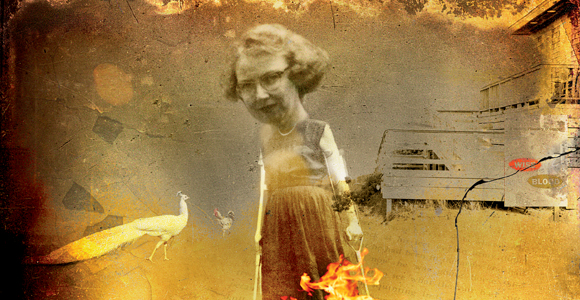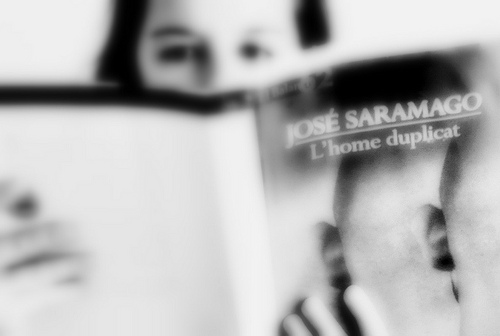Quotes from Flannery O’Connor’s “Some Aspects of the Grotesque in Southern Fiction”


In the world of grotesque fiction, Flannery O’Connor is the go-to mouth to voice what’s worth our academic time and what’s worth ignoring. Knowing my love of the grotesque and my respect for Flannery O’Connor, Richard Thomas passed along a copy of O’Connor’s important “Some Aspects of the Grotesque in Southern Fiction” (1960) which somehow I had never read before. I’m glad I have now rectified that problem. Below are a few choice quotes, words I’m sure I will cite for the rest of my writing career, especially when citing my own grotesque fiction.
On mystery as motivation
…if the writer believes that our life is and will remain essentially mysterious, if he looks upon us as beings existing in a created order to whose laws we freely respond, then what he sees on the surface will be of interest to him only as he can go through it into an experience of mystery itself. His kind of fiction will always be pushing its own limits outward toward the limits of mystery, because for this kind of writer, the meaning of a story does not begin except at a depth where adequate motivation and adequate psychology and the various determinations have been exhausted. Such a writer will be interested in what we don’t understand rather than in what we do.
On exhausting human knowledge
Fiction begins where human knowledge begins–with the senses–and every fiction writer is bound by this fundamental aspect of his medium.
On the path of least resistance
Henry James said that Conrad in his fiction did things in the way that took the most doing. I think the writer of grotesque fiction does them in the way that takes the least, because in his work distances are so great. He’s looking for one image that will connect or combine or embody two points; one is a point in the concrete, and the other is a point not visible to the naked eye, but believed in by him firmly, just as real to him, really, as the one that everybody sees.
On sentimentality
Even though the writer who produces grotesque fiction may not consider his characters any more freakish than ordinary fallen man usually is, his audience is going to; and it is going to ask him–or more often, tell him–why he has chosen to bring such maimed souls alive. Thomas Mann has said that the grotesque is the true anti-bourgeois style, but I believe that in this country, the general reader has managed to connect the grotesque with the sentimental, for whenever he speaks of it favorably, he seems to associate it with the writer’s compassion.
On being Christ-haunted
Whenever I’m asked why Southern writers particularly have a penchant for writing about freaks, I say it is because we are still able to recognize one. To be able to recognize a freak, you have to have some conception of the whole man, and in the South the general conception of man is still, in the main, theological. That is a large statement, and it is dangerous to make it, for almost anything you say about Southern belief can be denied in the next breath with equal propriety. But approaching the subject from the standpoint of the writer, I think it is safe to say that while the South is hardly Christ-centered, it is most certainly Christ-haunted. The Southerner, who isn’t convinced of it, is very much afraid that he may have been formed in the image and likeness of God. Ghosts can be very fierce and instructive. They cast strange shadows, particularly in our literature. In any case, it is when the freak can be sensed as a figure for our essential displacement that he attains some depth in literature.
On audience limitations
The novelist must be characterized not by his function but by his vision, and we must remember that [the author’s] vision has to be transmitted and that the limitations and blind spots of his audience will very definitely affect the way he is able to show what he sees. This is another thing which in these times increases the tendency toward the grotesque in fiction.
On novelists and and poetry
The great novels we get in the future are not going to be those that the public thinks it wants, or those that critics demand. They are going to be the kind of novels that interest the novelist. And the novels that interest the novelist are those that have not already been written. They are those that put the greatest demands on him, that require him to operate at the maximum of his intelligence and his talents, and to be true to the particularities of his own vocation. The direction of many of us will be more toward poetry than toward the traditional novel.
photo credit: http://marcyankus.com/site/

